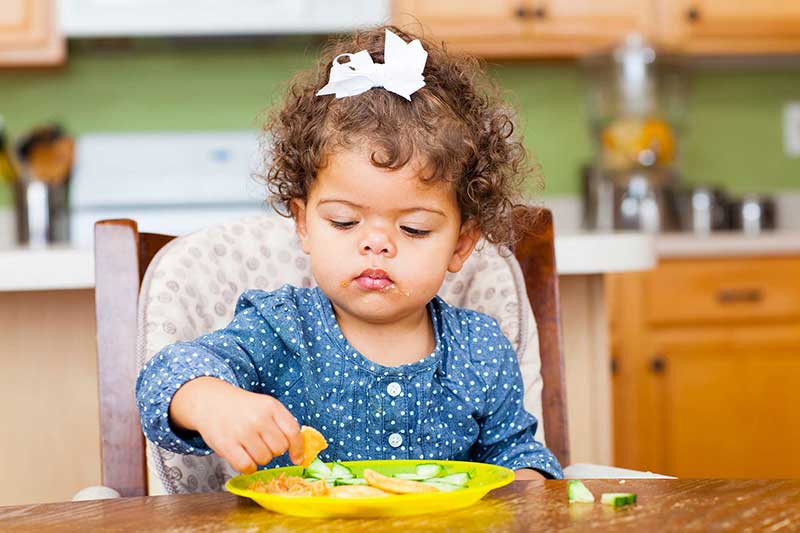Movement Milestones for Your 4- to 5-Year-Old

In the blink of an eye, your little one is not so little anymore! Around this age, your child may enjoy games that have them moving in all directions. And all that movement helps their physical development. Plus, by problem-solving and communicating with their friends, your child will boost their brain development, too! Our experts share what else to look for at this age, and some things to do with kids that encourage movement!
In this article:

4- to 5-year-old milestones
As your preschooler continues to grow, their confidence is growing with them. You’ll see them take more risks as they play and move in new ways. Here are some 4- to 5-year-old milestones to look for:
- Standing and hopping on 1 foot. Improved motor skills allow your big kid to balance for longer periods of time. Encourage this skill by playing games like the floor is lava and hopscotch.
- Climbing on everything. Whether it’s the jungle gym, monkey bars, rock walls or slides, your preschooler will be excited to show off their climbing skills. Make a visit to the playground, where they can explore new heights.
- Pumping their legs while swinging. Speaking of new heights, your big kid may be ready to swing all by themselves, using their legs to propel them.
- Dressing themselves in more difficult clothing items. As your child’s fine motor skills improve, they’ll be able to work zippers, buttons and laces.
- Tumbling. Your preschooler is moving and shaking in all kinds of new ways. Before you know it, they may be attempting their first cartwheel.
- Skippin’ and jumpin’. Sometimes walking just won’t do. At this age, your child may think it’s more fun to skip or jump from one place to another.
Your child is hopping, skipping and running toward new milestones all the time. Encourage their curiosity and exploration by moving with them and role-modeling an enthusiasm for activity.
How to encourage milestones for 4- to 5-year-olds
There are several ways to help your child meet these 4- to 5-year-old milestones. Try these:
- Stay positive. Nobody’s perfect, especially when they’re trying something new. As your child develops, it might take time for them to master new skills. That’s normal and OK! Avoid trying to continuously correct your child’s movement. At this age, let them move in a way that feels right to them. To raise a child who is active for life, keep movement fun and positive!
- Foster play. Create opportunities for your child to play with their friends. Engaging with their peers not only gets kids moving, but it also helps them learn social, emotional and communication skills. Your child can play with other kids at supervised playdates or in a school setting.
- Support all emotions. Activity is not only needed for physical development, but it can also help preschoolers express their feelings and emotions. These may include frustration, discomfort and excitement, all of which are normal and OK. Your role as the caregiver is to encourage them through all their ups and downs. Remember, you can never spoil a child by showing love and responding to their needs.

Safety tips for parents and caregivers
Your child is starting to take more risks in their play. You may hear them calling out, “Watch me climb this tree!” or, “Watch me jump off this swing!” Keep your child safe as they try new things by following these safety tips:
- Make sure everyone wears a helmet. Your child should wear a helmet anytime they play on something with wheels. Model best behavior by wearing one yourself anytime you’re on a bike, skateboard or scooter!
- Practice water safety. Drowning can happen in as little as 30 seconds. When playing near water, keep kids within arm’s reach, eyes’ reach.
- Follow gun safety rules for families. Your big kid is exploring new things every day. Practice safe gun storage to keep your child safe. Believe it or not, kids as young as 2 are strong enough to pull a trigger.
- Play by playground safety rules. From checking posted signage to making sure the playground uses safe materials and equipment, there may be more to look out for at the playground than you think. Check out our experts’ tips for keeping little ones safe at the playground.
- Get more home safety tips for parents and caregivers.
Note: If you’re concerned about your child meeting their milestones, talk with their pediatrician.





